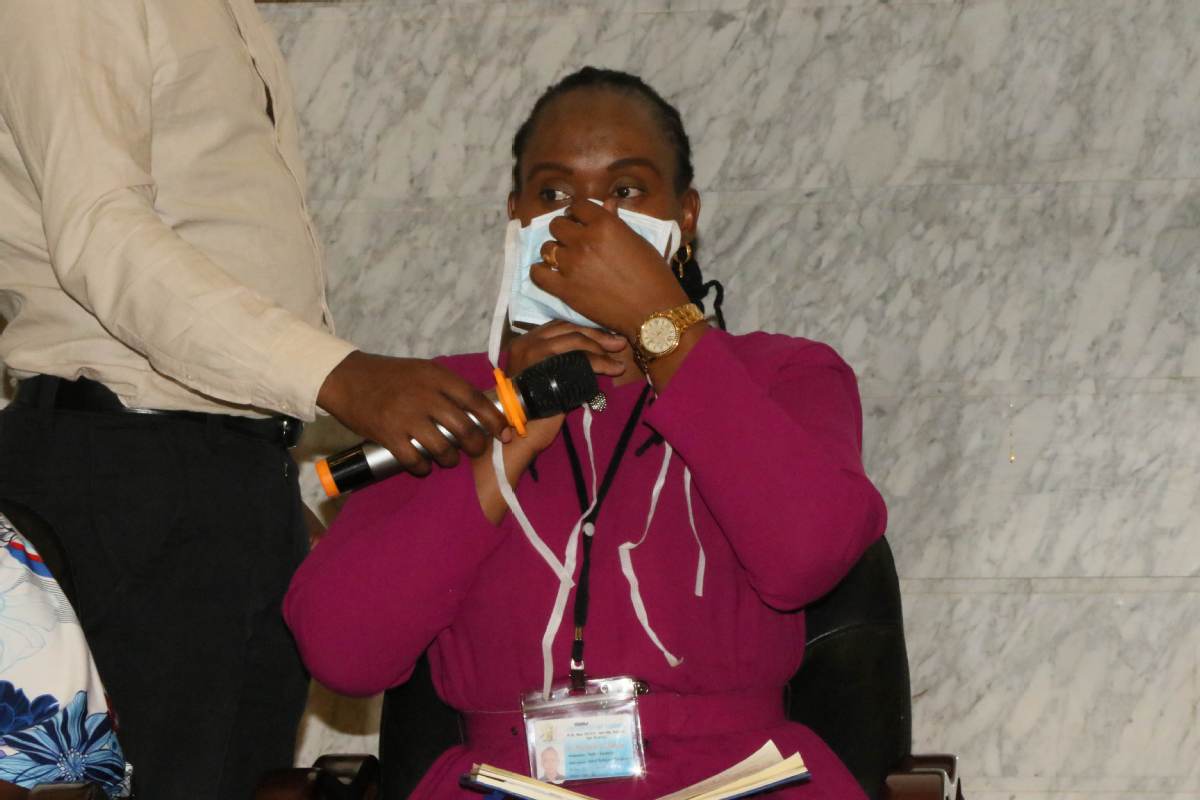Kenyan university holds a sensitization forum on coronavirus


The University of Nairobi in Kenya held a forum to sensitize the public on issues surrounding the coronavirus at the university's Chandaria Auditorium. The forum held on Thursday assembled a panel of five experts from the areas of virology, anthropology, economics, public health and physiology to unpack the health, social and economic impact of the virus for the public.
Moses Masika, a lecturer at the university and the moderator of the session, said the university found it necessary to hold the forum in order to address myths and facts about the coronavirus.
"While issuing the executive order on the emergency response to the coronavirus, president Uhuru Kenyatta urged players in the private and nongovernmental sectors to support the government in raising awareness about the virus and that is why we have taken up the challenge to hold this forum and avail the public with information about the virus," Masika said.
While giving an eye-opening talk on corona viruses, Omu Anzala a virologist at the university, clarified that the spillover of the virus that emanated from Wuhan, China, could emerge from anywhere including Kenya.
While saying that bats are believed to be the ancestral host of all the known corona virus lineages with transmission to animals, birds and humans, Anzala said that a research project by the university in 2018 in Kenya's coastal town of Taita revealed that coronavirus prevalence in bats at the town was 10.8 percent.
"Let us not imagine that the virus is far away from us, it could emerge from any point including this country," Anzala said. "This therefore calls for us to be sensitive and not discriminate against people like the Chinese in our country because the outbreak is not as a result of their fault."
While talking about the social implication of the outbreak, Salome Bukachi, a medical anthropologist at the university, said that Kenyans should be prepared to change how they interact with one another as they observe precautionary measures to avoid the spread of the disease.
"We should start practicing alternative ways of greeting each other that do not involve handshakes and reduce unnecessary social and family gatherings. We should also be careful about the information we spread especially on social media since unverified information can lead to panic which might cause unwarranted stigmatization against health workers, people of a certain ethnicity or patients," Bukachi said.
Marybeth Maritim, a physician at the university, reminded the public that the greatest responsibility in preventing infection by the virus lies with individuals.
"I know we like asking what the government has done to prevent the disease from spreading in our country but I want to remind you that the responsibility to avoid infection lies with the individual," Maritim said.
She encouraged Kenyans to adopt the best practices prescribed by the ministry of health and emphasized that these habits should be adopted by everyone in the households including children.
On Friday, Kenya's health ministry confirmed the first positive case of coronavirus in the East African country. The case is a 27–year-old Kenyan woman who traveled from the US through London to Nairobi. According to the ministry, the patient is in isolation and her condition is stable.
- Kenyan president commits to eliminating malaria from Africa
- Kenyan govt urges citizens not to mistreat foreigners due to COVID-19 outbreak
- Kenyan police rescue a Chinese from kidnappers
- Kenyan Chumba eyes Tokyo marathon title
- Show of solidarity as Africans look to learn from China on epidemic management
- Vice-chairman of CPPCC Jiangxi Provincial Committee placed under investigation
- Five trapped in flooding accident at Heilongjiang coal mine
- Long March 5 rocket deploys tech demo satellite into space
- China launches communication technology test satellite
- Spokesperson warns against aggression toward mainland fisherman
- Lhasa wetland reserve recognized as world's highest altitude wetland




































